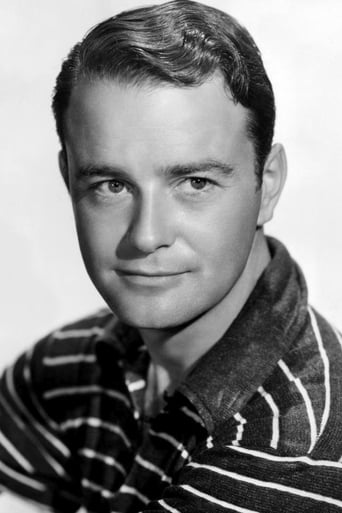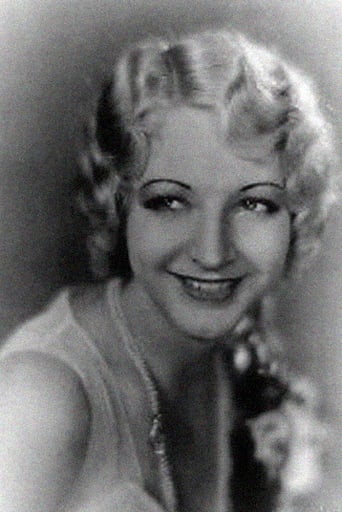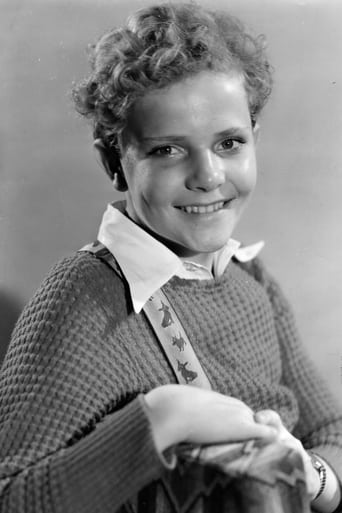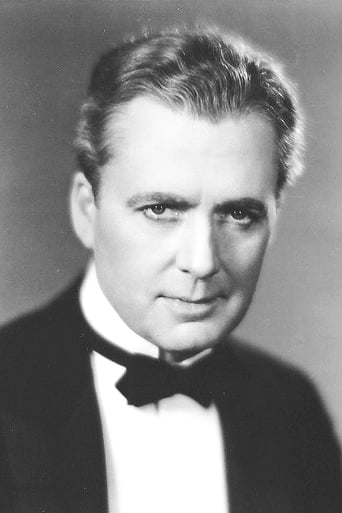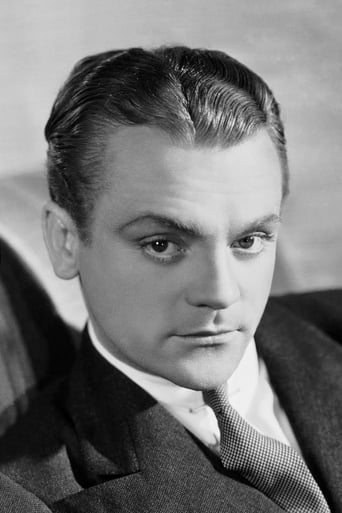Intcatinfo
A Masterpiece!
Rio Hayward
All of these films share one commonality, that being a kind of emotional center that humanizes a cast of monsters.
Philippa
All of these films share one commonality, that being a kind of emotional center that humanizes a cast of monsters.
Kayden
This is a dark and sometimes deeply uncomfortable drama
MartynGryphon
When I refer to the 'Big Three' I am of course referring to the holy trinity of early 1930's gangster flicks: Little Caesar, The Public Enemy & Scarface.Firstly, this is NOT a James Cagney movie. It's a Lew Ayres movie in which James Cagney, (In only his second movie), is amongst the great supporting cast and based on this performance it was easy to see the star in the making.Lew Ayres plays Louie Ricarno, a bootlegging gangster determined to get rich or die trying. Cagney plays Mileaway, his right hand man who's character seems to be well named as whenever any of the action takes place in the movie, Cagney seems to be a 'mile away' from it, as it's one of the few Cagney movies made where he doesn't either kill, mame or even hit anyone.After a series of tit-for-tat murders between rival gangs, Ricarno calls a meeting with all his rival bosses and proposes that in return for them declaring him ultimate boss, he will protect their operations from any rival gang who may try to encroach on their areas. One wonders whether Charles 'Lucky' Luciano ever saw this movie and used this element of it's plot as his blueprint for the 'syndicate' which he adopted after the murder of crime boss Salvatore Maranzano a year later.After a period of profitable peace for all involved, Ricarno feels that he's made enough money to quit the rackets for good and go straight. His two main reasons for this life style U turn, is his new wife Doris, (Dorothy Mathews), (who unbeknown to him is having a passionate affair with his best friend Mileaway), and his young Brother Jackie, played brilliantly by Leon Janney. Louie doesn't want Jackie to either follow in his footsteps or even rub shoulders with the ne'r-do-well's he does.It's not long after louie's departure that old gang fueds come to the fore once more and gangland killings escalate. In order to incite Louie back to the city, two gangsters plot to kidnap Jackie only to release him when Louie returns. However, the kidnapping is botched as Jackie, who blessed with intelligence of his brother, smells a rat. In his bid to escape, he is knocked over and killed by a passing truck.On hearing the news, Louie, now driven solely by vengeance on the would be kidnappers, returns to his old turf, but peace & profits are the last thing on his mind, and you half expect him to utter Al Pacino's memorable line "Just when I thought I was out....they pull me back in"Ayres, although brilliant in his role was probably miscast, especially when you had the best movie tough guy in world playing the lead's sidekick. (A mistake they nearly duplicated with The Public Enemy until the producers woke up).One let down of the movie was the rivalry between Ayres and fellow gang boss Rocco (Noel Madison), I feel the bitterness between the two needed to be brought out in the plot a little more. Sadly, because they didn't do this, the movie is robbed of any REAL menacing villain.The Pre-code element was also very risqué and the fact that the affair between Cagney's & Mathews's chaarcters was so obviously sexual, must have had all at the Hays office pulling their hair out.Like in most early talkies, many cast members seem to struggle with adapting to the new medium, such as adopting wild animated body gestures as they would have done in silent pictures and also speaking terribly slowly as they were so often told to do. Luckily both Ayres & Cagney are on hand to show them that you didn't need to speak three words a minute to be understood on film.Doorway to Hell is a great early Warner's gangster movie and worth giving a go.Enjoy!
bkoganbing
The Doorway to Hell is yet another step up the ladder for James Cagney as the Brothers Warner discover that the guy they signed for a one shot deal to repeat his stage role from Penny Arcade was in fact future star material. He was certainly unlike some of the classical emoting stars from the silent period, unlike anything that ever had been on screen before.Lew Ayres is the lead in this film, Cagney's his chief henchman. Ayres is an ambitious guy who's determined to bring a little organization to the bootleg booze business in his city. And then as soon as he gets it going, he quits. He wants to spend time on the golf course and with his new wife. The wife, Dorothy Matthews, is bored with early retirement mainly because she's been two timing Ayres with Cagney and Cagney's not around.The story is pretty silly in any number of ways. First the various mob heads resent Ayres taking over, then they resent when he leaves. Secondly, it's not made clear at all why Cagney isn't capable of running this thing by himself, he sure looks capable enough. And the plot where two of the gangsters have the brilliant idea to kidnap Ayres's little brother from military school to bring him back is frighteningly stupid.Ayres, Cagney, Matthews and the rest muddle through this dumb mess. Ayres was already a star due to All Quiet on the Western Front. And Cagney you had no doubt was going to be a star if the right vehicle was found for him. Even if Cagney had been in Ayres's role, I'm not sure The Doorway To Hell would have been it.
MartinHafer
This is a very early talkie gangster film. Because it was made only a few years after talking pictures debuted, it suffers from a few defects that were related to the technology--such as an over-reliance on long shots--making the film look a bit "stagy". Additionally, background and incidental music in the film is noticeably absent. You really can't blame the filmmakers, as the technology was new and they still had to work out a few kinks, but it does make the film seem pretty dated and creaky. It wasn't until a year later that these two problems were pretty much eliminated in American films and even better gangster films like PUBLIC ENEMY and LITTLE CAESAR debuted.The story itself is very interesting due to its cast. Lew Ayres, who had just made a name for himself in ALL QUIET ON THE WESTERN FRONT, stars as a "nice" and "respectable" mob leader. Only late in the film do we see him unleash a wave of extreme violence. This is actually rather ironic considering that in real life, Ayres was strongly opposed to violence and when drafted in WWII, served as a medic because he was so morally opposed to taking lives! Also, this was only the second film for Jimmy Cagney. Since he wasn't an established star, it's not surprising he plays a supporting role though he already was being cast as a mobster in films.The movie is in some ways a very typical Warner Brothers gangster film, though with one exception. Mob boss Ayres is a supposedly smart man and retires from the mob when he's still very young and able to enjoy the spoils of his work. But, when the gangs start fighting among themselves, he is reluctantly pulled back into the picture--leading to a rather dramatic conclusion. Interestingly, although the movie was pretty violent in spots and probably featured more gunfire than any film of the 30s, some of the key violent scenes are not seen but are only heard. An interesting idea no doubt spurred on by the new sound technology.
Karen Green (klg19)
Much has been said about Lew Ayres being miscast in this film, but I don't agree. The notion that a pretty young boy can't be a gangster is belied both by Ayres' performance and by history itself--Pretty Boy Floyd, anyone? (I should add, however, that Jimmy Cagney, in his autobiography, agreed with those who believed Ayres was too pretty to play a convincing gangster!)This film is so much better than you'd think, and that is due not only to fine performances by Ayres and Cagney (make that, a WONDERFUL performance by Cagney, who really does ignite the screen), but also to impressive direction by Archie Mayo. I confess I usually think of Mayo as a pretty journeyman director, but maybe I've only seen his later work and "talkies" spoiled him. If you were to watch this film without sound, you'd be hyper-aware of the wonderful camera set-ups and editing, particularly during the prison break, when the screen is filled with jump cuts of men's legs running. Of course, without the sound, you'll miss the great period dialogue (a gangland ambush offers Ayres the opportunity to "walk into a handful of clouds").TCM shows this film from time to time, and you really shouldn't miss it. It's well-written, well-directed, has great performances, and the closing lines (displayed as a printed page of the source story on the screen) are as poignant as anything you'll ever read.

